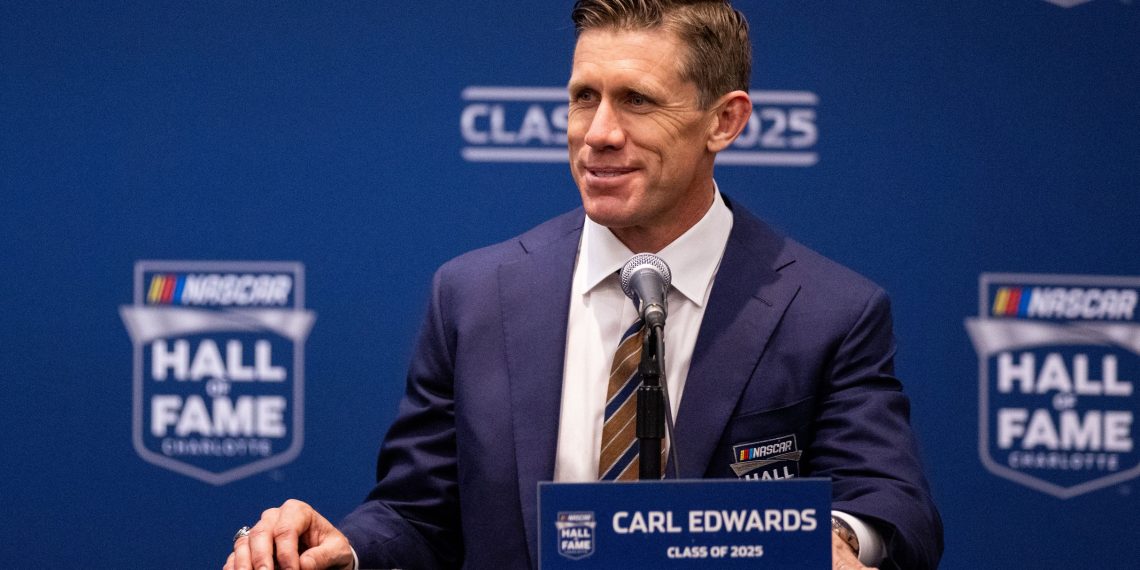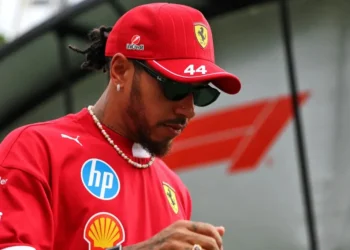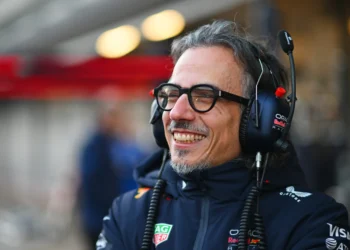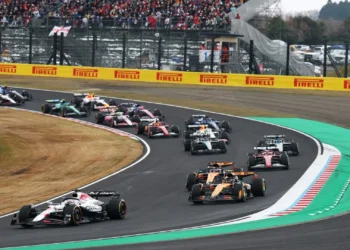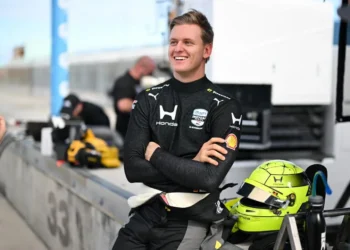“Heavy lies the head that wears the crown.” Few Shakespearean quotes could better summarize Carl Edwards’ NASCAR journey—a story of triumph, burden, and self-discovery.
The Missouri native, known for his backflips, relentless work ethic, and aggressive yet clean racing, shocked the motorsports world when he walked away from NASCAR in 2016. But in 2025, the 28-time Cup Series winner was given the ultimate recognition—induction into the NASCAR Hall of Fame.
For Edwards, who had spent years wondering how the sport would remember him, the honor came as a complete surprise. And when he took the stage to deliver his acceptance speech, the emotions in the room were palpable. What followed was one of the most honest and self-reflective speeches in Hall of Fame history—a confession of lost friendships, misunderstood intentions, and the struggle of maintaining a reputation in a cutthroat sport.
The Moment That Changed Edwards’ Perspective Forever
Edwards’ career wasn’t just about winning races—it was about earning respect. But somewhere along the way, he realized that respect and reputation are two very different things.
“I was in the garage, I was winning, and I thought, ‘Man! I’m being respected, elevated.’ It really felt great. Then, it’s like somebody would cross me, and I would think, ‘Hey! They’re not respecting me.’ So now I got to get them back, set the score.”
The pressure to maintain his reputation consumed him.
As he racked up wins, he found himself constantly trying to “set the score”, whether by retaliating on track or delivering sharp words off it. He became so fixated on how people perceived him that it started to change who he was as a person.
Then, a simple conversation with his brother changed everything.
“Some driver said something about me being a phony or a fake. And I was like, ‘Man, why would they say that?’ And I was really upset about it. My brother told me, ‘They don’t know you, why do you care so much what they think about you?’ And a light went off.”
This was the turning point. Edwards realized that he had been confusing reputation with character—that his true self-worth wasn’t determined by what people thought of him, but by the way he treated others.
“Oh my gosh. I care a lot about [what] people who don’t know me think… that’s called reputation.”
From Nice Guy to Hard-Nosed Competitor: The Inner Battle
Carl Edwards was once NASCAR’s golden boy—the smiling, polite young driver who handed out business cards to anyone willing to give him a shot. But as the wins came, so did the scrutiny.
“People who know you, what they know about you, is your character. I realized right then it’s gonna be a long painful process, but I’m gonna try to treat people around me well.”
He admitted that his personality changed as his career progressed, shaped by the pressures of being a championship contender. The fans still loved him, but his relationships with fellow drivers became frosty.
Even in his most heated rivalries, Edwards now believes he could have handled things differently. His infamous 2016 crash with Joey Logano, which ultimately defined the final chapter of his NASCAR career, was one of those moments of reflection.
But through it all, his biggest realization was that kindness was more important than retaliation.
“I don’t give a damn about my reputation anymore. It was a really big moment for me, very difficult. I’m a performer, I want people to clap for me and like me.”
A Hall of Fame Legacy Defined by More Than Wins
Edwards’ Hall of Fame induction was a moment of validation, but also a moment of closure.
After nine years away from the sport, he finally let go of the burden of his reputation. The weight of expectations, rivalries, and past regrets melted away, leaving behind only the memories of what he had accomplished.
“We all make mistakes, we all say the wrong things. But I’ve learned that being polite and treating people right is always the right decision.”
Now, as a Hall of Famer, Carl Edwards leaves behind a legacy that isn’t just about wins, poles, or near-misses at championships.
It’s about growth. Perspective. And realizing that sometimes, the biggest victories happen off the track.

